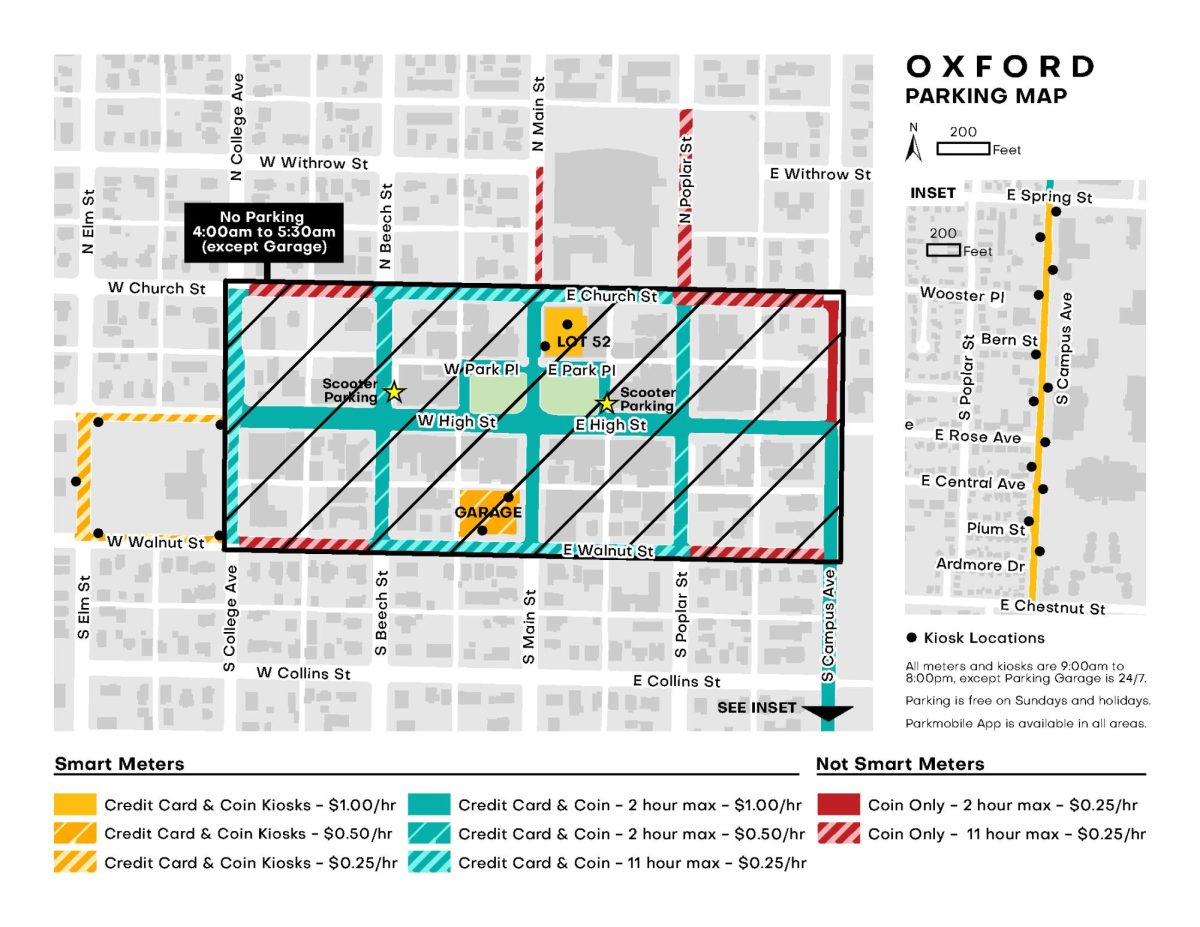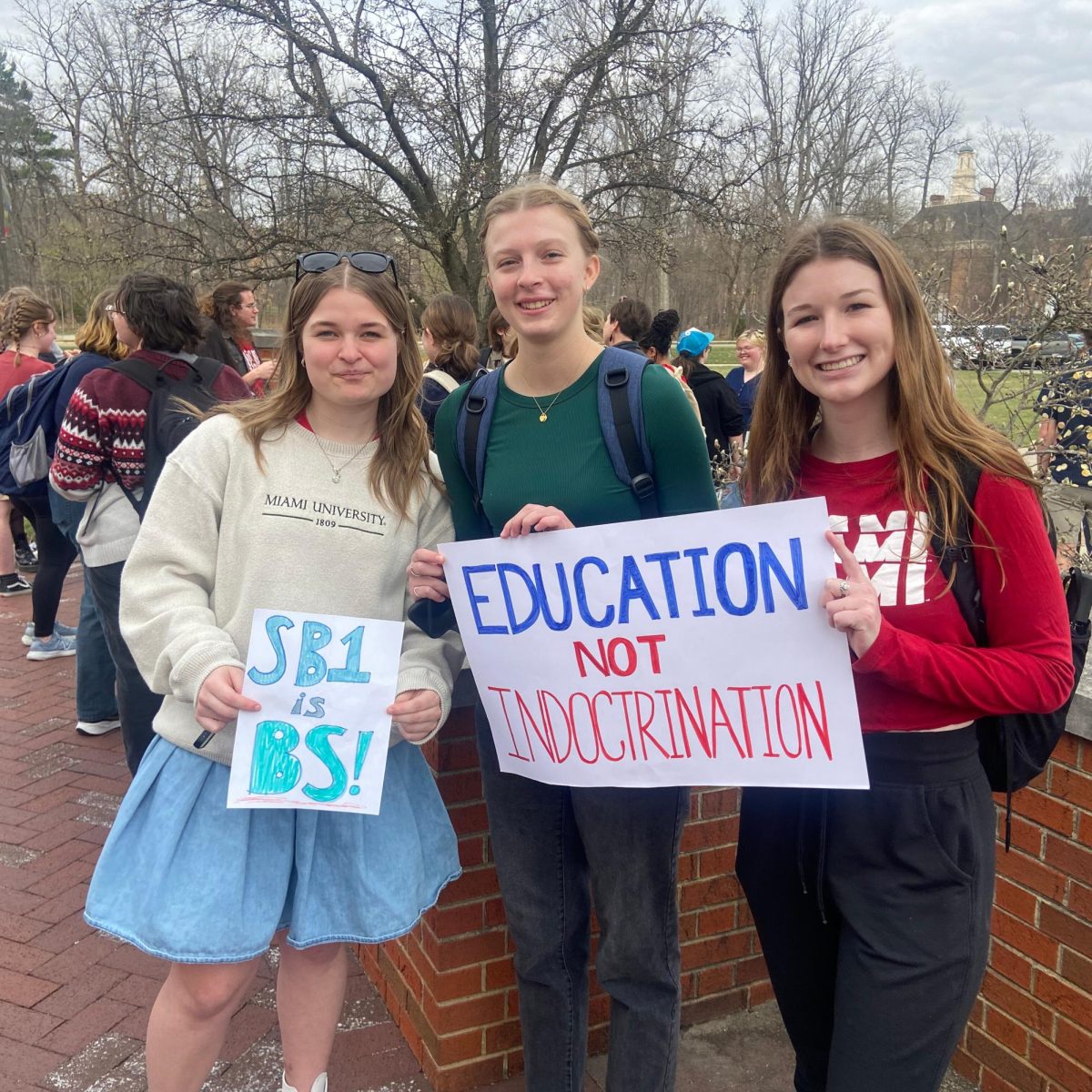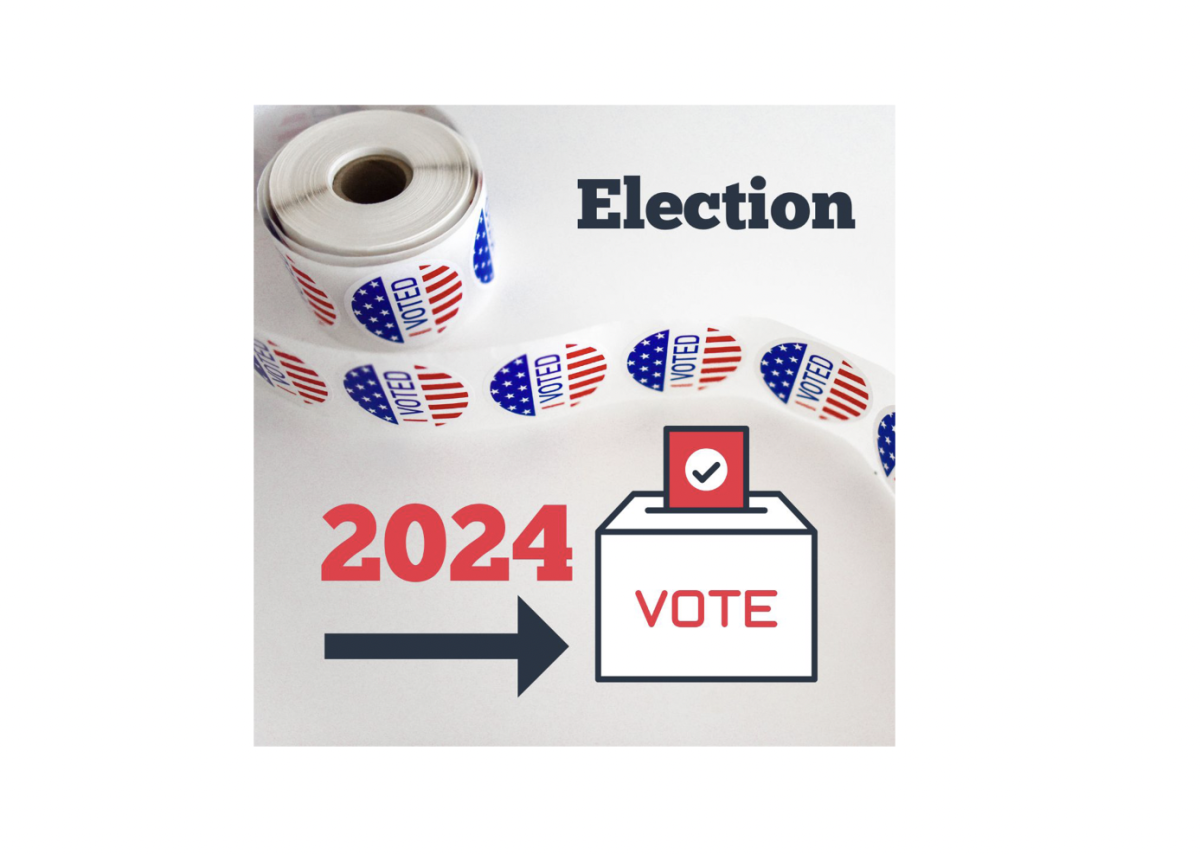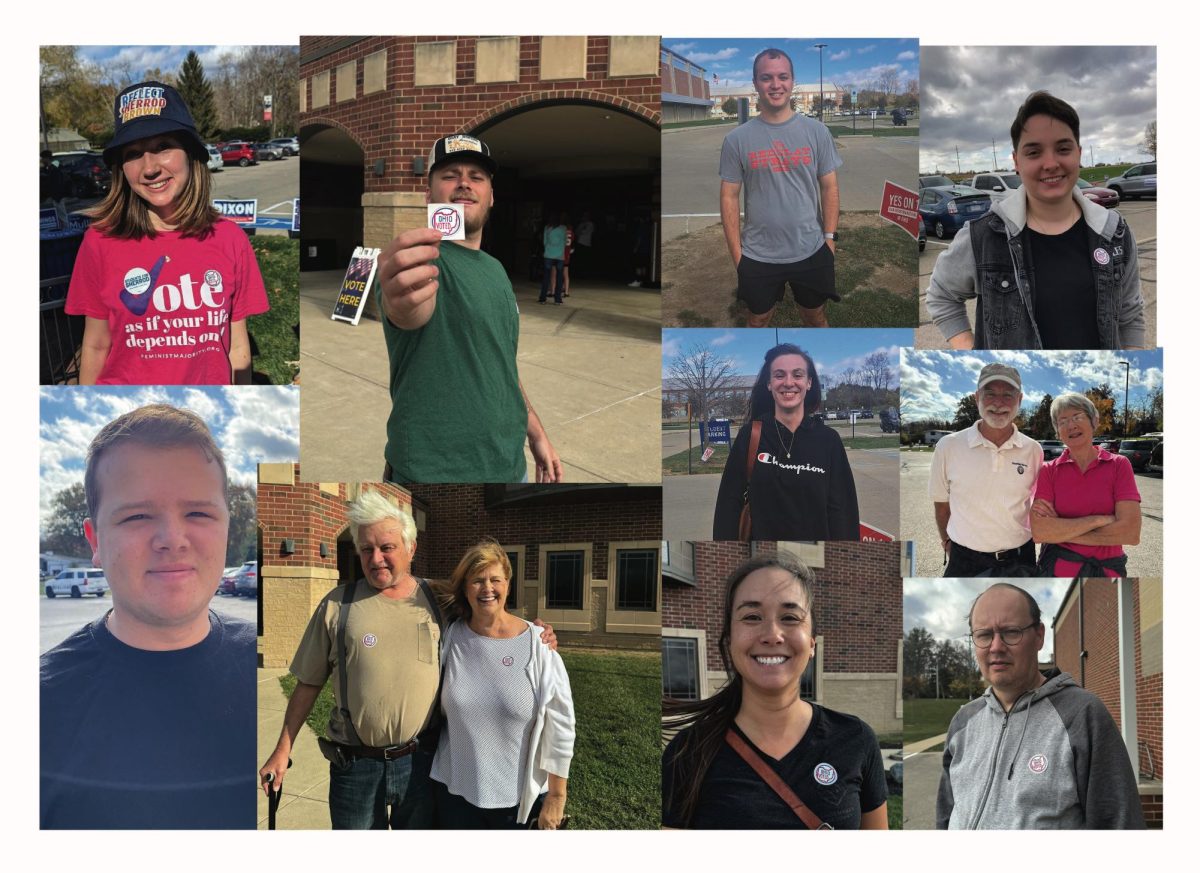Face masks dripped with sweat as a late-spring sun made students and residents swelter when they met in the TRI Community park for a peaceful protest, in solidarity with the Black Lives Matter movement Thursday, June 4.
But it wasn’t the sun that brought one man’s anger to a boil.
Oxford’s Vice Mayor Bill Snavely recalled witnessing the flustered man who had emerged from his car, while illegally parked sideways in a no parking zone, clearly.
“I was about halfway between the parking area and the pavilion where the speeches were being given,” Snavely said. “And I wasn’t really paying attention to him until I heard him say, ‘Look at you bunch of monkeys.’ And the monkeys caught my attention, obviously, and I immediately walked over there to see what was going on.”
Snavely said, at that point, a woman had pulled out a camera and started filming the scene that ensued after the racial slur was used. A video of the confrontation later was posted online by Oxford City Council member and Miami University graduate student Jason Bracken. Bracken is one of the people confronting the man in the video. The video begins after the onlookers said they heard the comment. The offensive comment is not on the video.
Before posting the video, Bracken consulted with various colleagues at Miami who he said identified the man as retired Miami University professor Douglas Brooks.
“I basically asked other people who knew him and they said 100% yes,” Bracken said. “So, we verified it was him and I reacted. I had to make that known. Because, to me, it was unfathomable that somebody who would scream a racial slur at a crowd full of people of color rallying for people of color would not only be a professor, but a professor in teacher education… They teach teachers how to teach.”
Miami has responded to the accusation with emailed statements from University President Gregory Crawford, and Provost Jason Osborne. A shadow class was also created for the online summer course Brooks was teaching in his retirement. The shadow class allows students to transfer and take the course with a different professor with no academic penalty.
Crawford’s email to students said the comments weren’t in line with the university’s principle of Love & Honor, however he chose not to identify Brooks by name. He also noted that protests and counter-protests are First Amendment rights. “Everyone has a right to free speech. So do I,” Crawford wrote in the email. “I declare here that I unequivocally denounce these vile words in the strongest possible way. Racist speech and acts are antithetical to our values and principles.”
Osborne’s email had a similar tone, but he chose to identify Brooks by name. “We received multiple reports that Douglas Brooks, a retired Miami University faculty member made vile, hurtful, and inflammatory remarks to a group of peaceful protesters in Oxford,” Osborne wrote. “I personally find it inconceivable that in 2020, fifty years after we as a nation committed to building a more just and equitable society, anyone could still hold views so deeply hateful and ignorant. Yet everyday individuals within our society choose to express hate and bigotry openly and proudly. It is evident we have much work to do.”
Brooks held teaching posts at the University of Northern Iowa and the University of Texas at Arlington before coming to Miami in 1985, where he retired as a full professor in 2015. He served as the chair of the Department of Teacher Education from 1985 until 1991, according to his resume on the university’s website. According to the university, he has been teaching an online graduate course on grant writing this summer.
The online comments to Bracken’s video and various other posts have shown that many abhor the idea that Brooks was ever teaching in the teacher education department in light of the accusations of bias and discrimination. The university’s official stance on discrimination, according to its handbook, is that “members of the Miami University community have the right to an environment free of conduct that unreasonably interferes, hinders, or otherwise denies another a suitable working, living, or learning environment.”
When students found out about the incident last week, a petition was created on change.org to advocate that Brooks be removed from his position at Miami. “He must be removed immediately and condemned for his prejudiced, intolerant views, launched at a group peacefully protesting injustice,” the petition said. “We call on administrators to right this wrong straight away.” As of June 10, the petition had over 18,000 names on it, and various comments posted from students who are discouraged by Brooks’ employment at the university, and some comments from students who felt Brooks had shown signs of biased behavior in class.
The call for Brooks to be fired puts Miami in a complicated situation between showing respect for the free speech rights of its faculty and sticking to its core values by condemning hate speech. John (Jack) Greiner, a Miami alumnus and partner at Cincinnati’s Graydon law firm, who specializes in First Amendment cases, said there’s a tension between public employee and employer on issues of free speech. “The employer in that case kind of wears two hats,” Greiner said. “They’re ‘I’m your employer and as your employer I have a right to maintain some level of order and discipline in the workplace so I have a right to potentially limit your speech to some degree or discipline you for speech that causes disruption in the workplace.’ But the other hat the public employer wears is that they’re the public — they’re the state — so there is First Amendment protection that a private employer wouldn’t have.”
While the university has not made any statement about dismissing Brooks, he was not scheduled to teach any courses in the coming fall semester, according to the university course list.
Tre King, a Miami University senior and resident assistant, said as a black student at Miami, the accusations are especially troubling. He said he found the university’s statement unsatisfactory and not reprimanding enough. He said he’s also bothered by Brooks’ multi-decade tenure at Miami if the accusation of discrimination is true.
“Brooks being a professor at Miami this long says a lot about the inner-workings of the institution,” King said. “When it was time for (Miami) to practice what they preach and truly show that diversity and inclusion was more than just a selling point they constantly use on their brochures and website, they failed.”
Bracken said he’s confident the university won’t bring Brooks on to teach any more courses in the future, and if they do that there will be significant opposition.
“I don’t think they’ll ever hire him again,” Bracken said. “I feel pretty comfortable that they wouldn’t do that, and if they did, there would be massive pushback from myself and many people.”
Snavely said that if he could say something to Brooks or people who share similar views that it would be, “You need to wake up.”
Brooks did not respond to repeated requests from the Observer for comment on this story. A person answering the door at his home declined to talk to our reporter.
Bracken said that he hopes in the long-run this can mean better hiring practices for Miami. “I hope this can mean change for the better,” Bracken said. “I hope the school can be more vigilant in who they hire and rehire. It’d be better if they sent a stronger response but this is mostly OK. Nobody’s forced to take his classes now, and he’s probably not going to have a class to teach going forward.”
















